2021 Graduate School Alumni Town Hall
Meet Dean Kathryn J. Boor and join a panel of graduate students as we discuss today’s Graduate School, our pivot to meet the pandemic’s challenges, graduate student support, and our plans for the future, during the Graduate School Alumni Town Hall on Friday, June 11 at 4:15 pm. Register through the Cornell Reunion website.
Host and Moderator
Kathryn J. Boor, Dean of the Graduate School and Vice Provost for Graduate Education
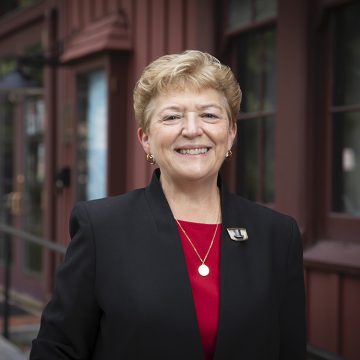 Kathryn J. Boor is the Dean of the Graduate School and Vice Provost for Graduate Education at Cornell University. Dr. Boor is responsible for oversight of all Cornell University Graduate School administrative offices, serves as the institutional advocate for all graduate students, and oversees all research M.S. and Ph.D. programs across Cornell University as well as program assessment of graduate fields of study.
Kathryn J. Boor is the Dean of the Graduate School and Vice Provost for Graduate Education at Cornell University. Dr. Boor is responsible for oversight of all Cornell University Graduate School administrative offices, serves as the institutional advocate for all graduate students, and oversees all research M.S. and Ph.D. programs across Cornell University as well as program assessment of graduate fields of study.
Previously, Dr. Boor served as the Ronald P. Lynch Dean of the College of Agriculture and Life Sciences (CALS) at Cornell University (July 1, 2010 – September 30, 2020).
Dr. Boor’s research focuses on identifying biological factors that affect transmission of bacteria in food systems, from farm to table. She established the Food Safety Laboratory at Cornell University; her group has published more than 175 peer-reviewed manuscripts. Among other discoveries, her team identified seminal evidence linking bacterial environmental stress response with virulence gene expression in the foodborne pathogen Listeria monocytogenes. Dr. Boor has served as major advisor for 27 graduate students and as minor advisor for an additional 22. She is a member of the graduate fields of food science and microbiology.
Read more about Dean Boor in her leadership profile.
Student Panelists
Xiangkun (Elvis) Cao, mechanical engineering doctoral candidate
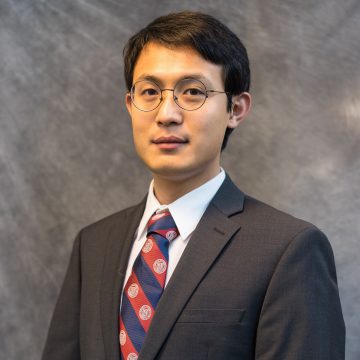 Mr. Xiangkun (Elvis) Cao is a Ph.D. Candidate working on carbon conversion in the Sibley School of Mechanical and Aerospace Engineering at Cornell University and an incoming postdoctoral associate working on carbon capture in the department of chemical engineering at the Massachusetts Institute of Technology.
Mr. Xiangkun (Elvis) Cao is a Ph.D. Candidate working on carbon conversion in the Sibley School of Mechanical and Aerospace Engineering at Cornell University and an incoming postdoctoral associate working on carbon capture in the department of chemical engineering at the Massachusetts Institute of Technology.
His Ph.D. research on HI-Light, a scalable solar reactor technology for converting CO2 into fuels, received the $20K Grand Prize (1/1,150) in the “Create the Future” Design Contest (2017), and was featured in the World Economic Forum’s white paper as an energy breakthrough of the past decade (2020). He co-founded C2X to reimagine CO2 emissions as an energy resource through policy engagement and youth empowerment, and Food2X to divert food waste from landfills for efficient biogas production.
For his work in the sustainability sector, Elvis is selected as a member of the Technical Working Group on Energy Transitions by the United Nations (2021), a German Chancellor Fellow by the Humboldt Foundation (2021), a Young Scientist by Lindau Nobel Meetings (2020), a UNICEF Young Changemaker on Sustainable WASH Solutions (2020), and a Forbes 30 Under 30 in Energy Honoree for North America by Forbes Magazine (2019), among others.
Watch Elvis compete in the 2021 Three Minute Thesis (3MT) competition and read about how the 3MT provided him with valuable communication skills.
Amelia-Juliette Demery, ecology and evolutionary doctoral candidate
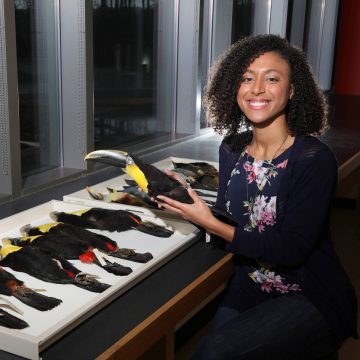 Amelia-Juliette Demery was born and raised in Los Angeles, California, where she received her undergraduate degree in biology and zoology at California State Polytechnic University, Pomona. She then received her master’s in science at San Diego State University.
Amelia-Juliette Demery was born and raised in Los Angeles, California, where she received her undergraduate degree in biology and zoology at California State Polytechnic University, Pomona. She then received her master’s in science at San Diego State University.
Her past and current research is interested in what makes organisms vary, focusing on the beaks of birds, their color, morphology, and how that has changed across space and time. At Cornell she is interested in the genetics underlying color in bird beaks and eyes and how it interacts with aspects of life history.
Amelia also spends a lot of time in service to the bird-loving community; she recently helped organize the public Community Congress on English Bird Names for the American Ornithological Society and serve as a member of the North American Bird Conservation Initiative’s Legislative and Policy Committee. At Cornell she serves as a graduate representative on the Committee for Diversity and Inclusion in the College of Agriculture and Life Sciences, and has co-taught a seminar on the science behind bias.
Read more about Amelia in her student spotlight and learn about an event she organized on safer fieldwork practices.
David Dunham, Germanic studies doctoral candidate
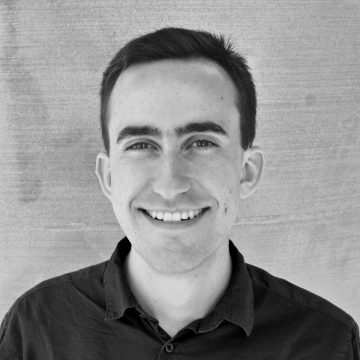 Growing up the son of an Air Force officer, David Dunham’s childhood was spread across many different states and countries. After living in Naples, Italy from 2002-2005, he gained a passion for foreign languages and decided that he wanted to study languages and literature at an academic level. From 2009-2013, he studied for his bachelor’s degree in philosophy and German Studies at New York University. During that time, he spent a year in Florence, Italy, and a semester in Berlin, Germany.
Growing up the son of an Air Force officer, David Dunham’s childhood was spread across many different states and countries. After living in Naples, Italy from 2002-2005, he gained a passion for foreign languages and decided that he wanted to study languages and literature at an academic level. From 2009-2013, he studied for his bachelor’s degree in philosophy and German Studies at New York University. During that time, he spent a year in Florence, Italy, and a semester in Berlin, Germany.
After graduation, he spent a few years working as a writing tutor at a company serving international high school students, when he decided that he wanted to return to education. In 2015, he came to Cornell University to pursue a Ph.D. degree in Germanic studies and is now in his sixth year of research.
David researches the formation of the case study in medical literature and its impact on literary works of fiction in the nineteenth century and beyond. His dissertation examines works that re-conceptualize deviant and unpredictable cases in the human sciences.
Read more about David in his student spotlight and learn about his takeaways from leading the Graduate and Professional Student Assembly.
Seema Singh, city and regional planning doctoral candidate
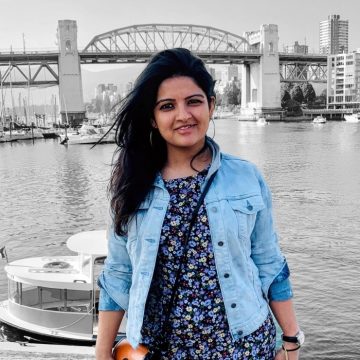 Seema Singh is a Ph.D. candidate in the field of city and regional planning at Cornell University. Her research interests broadly focus on cities, issues of inequality and justice, and exploring the potential of urban planning in creating a more equal world. In her dissertation, she studies gender and transport linkages in India. She hopes to reduce gender-based inequalities in cities by mainstreaming women’s needs in transport planning and policymaking. She is enthusiastic about sustainable living and was selected as a Young leader in Sustainable Transport in 2019.
Seema Singh is a Ph.D. candidate in the field of city and regional planning at Cornell University. Her research interests broadly focus on cities, issues of inequality and justice, and exploring the potential of urban planning in creating a more equal world. In her dissertation, she studies gender and transport linkages in India. She hopes to reduce gender-based inequalities in cities by mainstreaming women’s needs in transport planning and policymaking. She is enthusiastic about sustainable living and was selected as a Young leader in Sustainable Transport in 2019.
Prior to coming to Cornell, Seema worked for over four years as a research associate at the Energy and Resources Institute (TERI), a global policy think tank working on issues of sustainable urban development and transport globally. At TERI, she was engaged in exploring various dimensions of sustainability in the field of urban transport and developed a good understanding of the existing urban and transport policy environment, infrastructure inadequacy, user needs and behaviors, pricing issues, technology and other related challenges of transport sector, generally and with special reference to India.
Watch Seema compete in the 2021 Three Minute Thesis competition.

